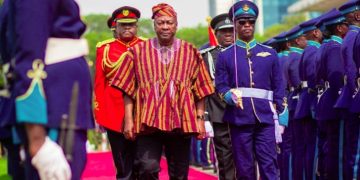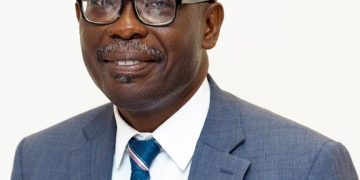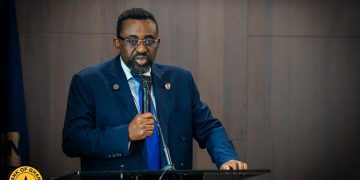The Ghana Catholic Bishops Conference has issued a strong call for a national overhaul of the country’s education system, warning that declining moral values, weakened discipline, and growing social confusion among young people threaten Ghana’s future.
In a communiqué released after its 2025 Plenary Assembly in Damongo, the bishops said the education sector requires urgent investment, national dialogue, and a renewed commitment to character formation.
According to the Conference, many schools across the country face crippling challenges ranging from inadequate infrastructure to overcrowded classrooms, unmotivated teachers, and poor learning outcomes. The bishops stated that Ghana’s education system cannot deliver meaningful transformation if students continue to learn in dilapidated structures or sit under trees. They added that the country has not yet matched the needs of twenty-first century learning with adequate resources.
The bishops expressed deep concern about the rising indiscipline among students and the gradual erosion of core moral values that once defined Ghanaian society. They warned that the country risks raising a generation that is intellectually trained but morally hollow. According to the communiqué, education should not only transfer knowledge but also cultivate honesty, responsibility, empathy, respect for authority, and a strong work ethic.
The bishops wrote that many teachers feel abandoned and undervalued and that their frustrations affect classroom delivery. They urged government to improve teacher motivation, supervision, continuous training, and welfare. They noted that the quality of a nation’s education depends heavily on the quality of its teachers and that motivated teachers create motivated learners.
The communiqué also addressed growing confusion among young people regarding identity, social values, and peer influence. The bishops said many youths are struggling with the pressures of social media, unregulated content, and harmful global ideologies that conflict with Ghanaian cultural and moral foundations. They argued that families, schools, and religious institutions must work together to ground young people in truth and values that promote human dignity.
The Conference called for the strengthening of religious and moral education in schools. They insisted that character formation is not an optional aspect of learning but an essential tool for building responsible citizens. The bishops argued that societies collapse when morality collapses and that intellectual achievements become destructive without ethical anchors.
They also expressed concern about the growing trend of school violence, substance abuse among young people, and teenage pregnancies which continue to affect school retention rates. The bishops said communities and traditional authorities must collaborate to protect children and guide them toward productive destinies.
The Conference urged government to review the school curriculum to ensure that it is relevant, practical, and aligned with national development goals. They proposed stronger emphasis on science, technology, entrepreneurship, agriculture, and problem solving. They further called for equitable access to quality education for children in remote and marginalised communities.
On school infrastructure, the bishops appealed to government to complete abandoned projects, expand facilities in growing communities, and ensure adequate supply of textbooks, computers, laboratories, and teaching aids. They stressed that Ghana cannot prepare for the future while schools lack basic amenities.
The bishops also encouraged parents to take greater interest in the moral and spiritual education of their children. They noted that too many parents have surrendered their responsibilities to schools, social media influencers, and peers. Good homes, they wrote, shape good children who eventually shape a good nation.
The communiqué concluded by urging government, faith-based organisations, and civil society to collaborate in rebuilding an education system that forms the mind, nurtures the heart, and builds the character of the nation. The statement was signed by Most Rev. Matthew Kwasi Gyamfi, President of the Conference.
Source: www.kumasimail.com



































































